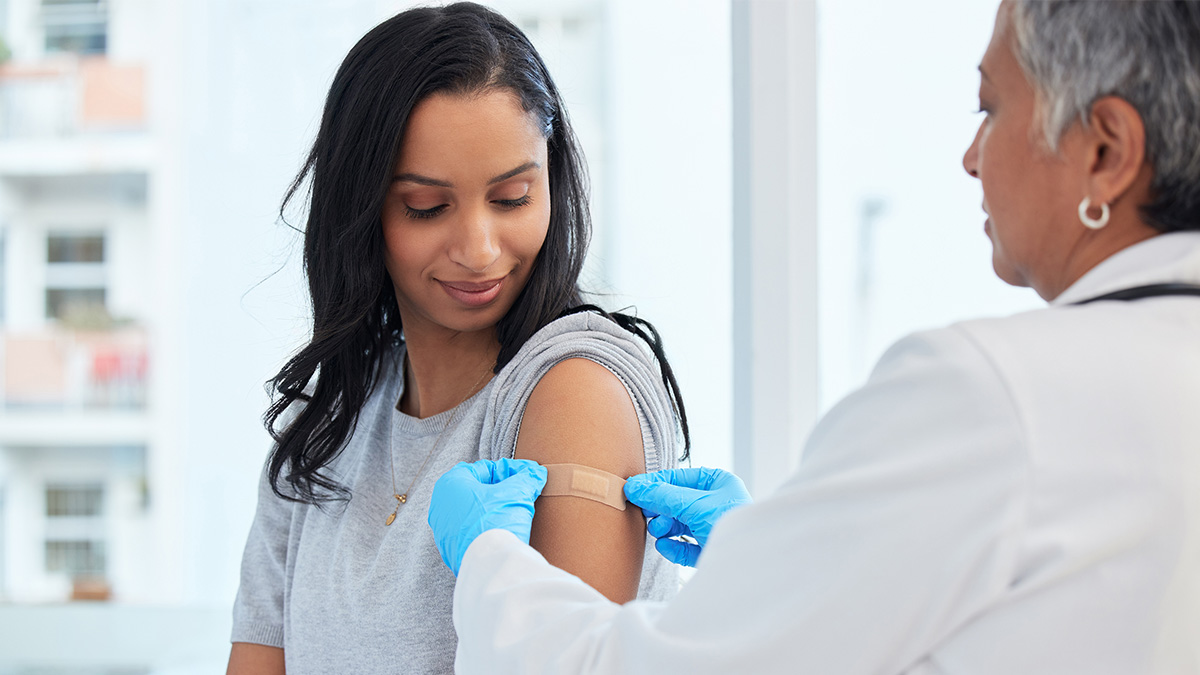Key points
- Hepatitis A is preventable by safe and effective vaccines.
- Vaccination is the best way to protect yourself against hepatitis A.

Recommendations at a glance
Children
- All children 12–23 months old as part of routine childhood vaccination.
- All children and adolescents 2–18 years old who have not previously received hepatitis A vaccine.
People at increased risk for hepatitis A
Some people are at higher risk for hepatitis A and should prioritize getting vaccinated. These people include:
- International travelers.
- Men who have sex with men.
- People who use or inject drugs.
- People whose jobs increase the risk of exposure.
- People who anticipate close personal contact with an international adoptee.
- People experiencing homelessness.
People at risk for serious disease
Some populations have a higher risk for serious disease from hepatitis A virus (HAV) infection and should consider vaccination. These people include:
- People with chronic liver disease, including hepatitis B and hepatitis C.
- People with human immunodeficiency virus (HIV).
- Pregnant people.
International travelers
There are some countries and regions where hepatitis A is more common, and travelers can be infected even if they regularly wash their hands.
If you're planning to travel internationally, talk to your doctor about getting vaccinated against hepatitis A.
You should plan to get vaccinated as early as possible, but even late vaccination can have some impact. If you can't get hepatitis A vaccine or if you're at a higher risk for disease, your doctor might recommend immune globulin to protect you for up to 2 months.
For full protection, you will need two or three shots, depending on the type of vaccine.
You can visit the CDC Traveler's Health Yellow Book for more information.
Who should not get the vaccine
If you have had an allergic reaction to a previous dose of hepatitis A vaccine or are allergic to any of the ingredients of the vaccine, you should not get vaccinated. Tell your doctor if you have any severe allergies.
Are you a health care provider?
Why vaccination is important
Cases of hepatitis A have declined significantly since the vaccine was first recommended. However, recently there have been many hepatitis A outbreaks.
What the vaccine protects against
Hepatitis A vaccines only protect against hepatitis A. There are separate vaccines for hepatitis B only, as well as a combination hepatitis A and hepatitis B vaccine that protects against both viruses. There is currently no vaccine for hepatitis C.
Getting vaccinated after exposure
Immune globulin is made from human blood plasma and has antibodies — the body’s natural defense against infection. While they don’t provide long-term protection like vaccines, immune globulin injections can help fight infection in certain cases.
Preventing hepatitis A with good hygiene
The hepatitis A vaccine is the best way to prevent infection. Washing your hands often — especially after using the bathroom, after changing diapers, and before preparing or eating food — can also prevent the spread of hepatitis A.
What to expect
There are two types of hepatitis A vaccines: single-antigen and combination. The single-antigen vaccine protects against hepatitis A and the combination vaccine protects against both hepatitis A and hepatitis B. You can only receive the combination vaccine if you’re 18 years or older. Make sure to get the full vaccine dosing for long-term protection.
Vaccine
Number of shots needed
Dosage timeline
Hepatitis A single-antigen
2
Shots must be at least 6 months apart
Combination: Hepatitis A and hepatitis B
(Must be 18 years of age or older)
3
All shots are given over the course of 6 months
In case of a delayed dose
While staying on schedule is important, delays can happen. If your first dose was more than 6 months ago, you should get your second dose as soon as possible. You do not need to get the first dose again.
Safety and effectiveness
Both types of hepatitis A vaccine are safe and highly effective, even for people with compromised immune systems. As with any medicine, there is a small risk that a serious problem could occur after getting vaccinated.
The potential risks of hepatitis A are much higher than any risks associated with hepatitis A vaccine. Millions of doses of hepatitis A vaccine have been given since the first hepatitis A vaccine was licensed in 1995.
Extra doses of the vaccine
If you or a loved one can’t find vaccination records, your doctor may recommend revaccination for hepatitis A. Extra doses of hepatitis A vaccine are not harmful.
Possible side effects
There are no serious side effects from hepatitis A vaccines. The most common side effect is soreness in the area around the shot site.
Available vaccines
There are several hepatitis A vaccines available in the United States, including:
- HAVRIX®
- VAQTA®
- TWINRIX®
Talk to your doctor to determine which vaccine is right for you.
Where to get the vaccine
There are several places to get hepatitis A vaccine for free or at a low cost. Talk to your doctor or local public health department to learn more. For children, check the CDC's Vaccines for Children Program.
